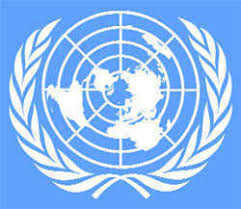
The main objective of India’s border management policy is to secure the country’s borders against illicit trade, including through the setting up of a Department of Border Management as well as establishing bilateral and multilateral avenues of cooperation in this sphere, Gill said.
United Nations, June 20
India has said its prime concern is to secure its borders against illicit trade, noting that the country’s national security has been adversely impacted by terrorism, transnational organised crime and drug trafficking.
Speaking at a UN conference on small arms here on Tuesday, Ambassador Amandeep Singh Gill, Permanent Representative of India to the Conference on Disarmament, said border management is a significant challenge for India as it shared a long border with several neighbours.
The main objective of India’s border management policy is to secure the country’s borders against illicit trade, including through the setting up of a Department of Border Management as well as establishing bilateral and multilateral avenues of cooperation in this sphere, Gill said.
He was speaking at the 3rd UN Conference to Review Progress made in the Implementation of the Programme of Action (PoA) to Prevent, Combat And Eradicate the Illicit Trade in Small Arms and Light Weapons (SALW) in all Its Aspects.
He said India attached great importance to the programme of action as the cornerstone of multilateral efforts to prevent, combat and eradicate the illicit trade in SALW.
“India’s national security has been adversely affected by terrorism, transnational organised crime, drug trafficking and piracy, in all of which, illicit trade in SALW plays a pernicious role. The continued full and effective implementation of the PoA is, therefore, a priority for India, especially as a means for combating terrorism and transnational crime,” he said.
Gill noted that despite the efforts of responsible states and international organisations, small arms, light weapons, ammunition and explosives continued to move illicitly across borders.
“It is, therefore, imperative to focus our attention on further strengthening the implementation of the PoA,” he said.
Government representatives are meeting at UN headquarters to review global action to address the illegal flow of revolvers, pistols, assault rifles, machine guns and other similar weapons.
These small arms and light weapons, which end up on battlefields or urban streets and elsewhere, are a big problem for the world, according to the UN body that has organised the two-week conference, which opened here on Monday.
Small arms fire kills over half a million people each year, UN Chef de Cabinet Maria Luiza Ribeiro Viotti had told the gathering.
She said while those pulling the trigger range from soldiers and police officers, to civilians--sometimes acting in self-defence --most are members of armed groups, terrorist organisations, criminal gangs or national security forces who are abusing their power.
“Regulating small arms is a unique challenge,” Viotti stated, delivering a message on behalf of UN Secretary-General Antonio Guterres.
Gill told the conference that India had a robust legislative and administrative mechanism to combat and eradicate the menace of illicit SALWs.
India maintains strict export controls over all munitions and related items, including SALW.
He said India believed that the full implementation of the International Tracing Instrument (ITI) would go a long way in tackling illicit trade in SALW. ITI requires states to ensure that weapons are properly marked and that records are kept.
“The ITI recognised the interconnected nature of marking, record keeping and international cooperation, which, in our view remain the three pillars of successful tracing of illicit SALW,” he said. PTI



























